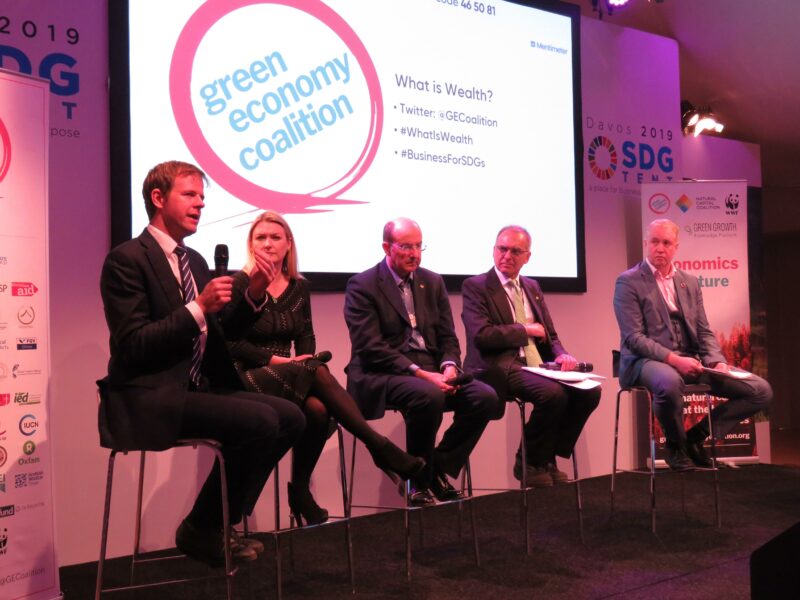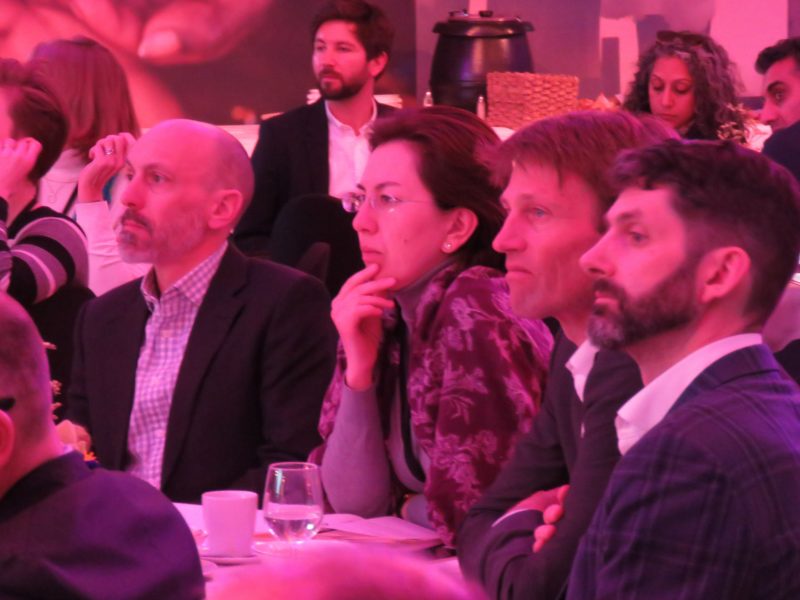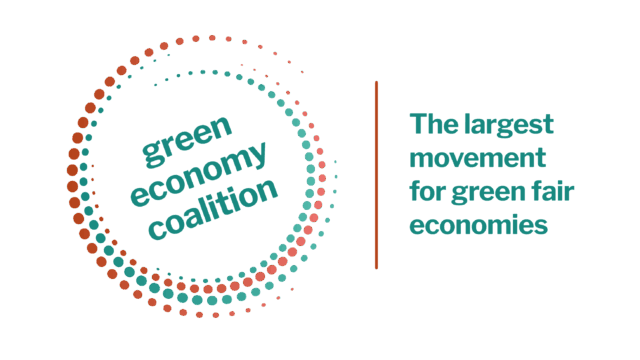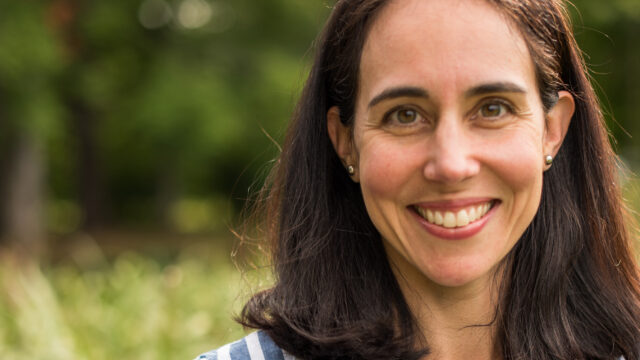
- How can ‘stakeholder capitalism’ help deliver a more sustainable world?
- What is the role for sustainable economic reform in ‘resetting capitalism’?
Our economic systems have reached an inflection point. People around the world are revolting against 'economic elites', and the environmental crisis is starting to hit home; brave policy leadership and a new agenda is sorely needed.
The World Economic Forum is proposing a shift, away from shareholder or state capitalism and towards a 'stakeholder capitalism' that is cohesive and sustainable. This aspiration is given form in the Davos Manifesto 2020. The Financial Times agrees – it is calling for creation of a new agenda and a reset of capitalism that must deliver ‘profit with purpose’.
But stakeholder capitalism is not new. Professor Klaus Schwab proposed it as a guiding model in 1971 at the first incarnation of what is now the WEF. A business model that took account of “…not merely shareholders, clients and customers, but employees and the communities within which they operate, including government”.
Despite these good intentions, in the 40 years Davos has not been known for the inclusivity of its discussions. Now that entwined economic, social and environmental crises are accelerating, we are asking what measures does it take to reset capitalism towards a different set of outcomes?
What next
A genuine manifesto for ‘stakeholders not shareholders’ calls for radical collaboration between the public and private sectors. We need urgent and mutually reinforcing action from governments, from policy, from business, from finance, and from civil society.
Building on this emerging consensus for a systemic response, we are gathering leading decision-makers to examine and shape the new green economic reform agenda.
“ Now that entwined economic, social and environmental crises are accelerating, what measures will it take to reset capitalism towards a different set of outcomes?”
Together, as global investment bodies, international development and central banks, central government and finance ministries, industrial and business leaders, civil society influencers, media and practitioners we will explore two overarching questions:
- How can ‘stakeholder capitalism’ help deliver a more sustainable world?
- What is the role for sustainable economic reform in ‘resetting capitalism’?
The format
On the evening of 22nd January, 70 key stakeholders have been invited to take part in a high-level dinner dialogue.
The event aims to generate a deeper, more meaningful discussion amongst everyone in the room. There will be no keynotes or panels. Rather, guests will be led through a three-part dialogue and invited to share their reflections to the room between courses.
Each course will start with a short provocation from a leading decision maker. We are excited to be joined by, amongst others:
- Gabriela Ramos, OECD Chief of Staff and Sherpa to the G20
- Guy Ryder, Director General, ILO
- Mariana Mazzucato, Professor in the Economics of Innovation & Public Value, University College London
- Richard Mattison, Chief Executive Officer, Trucost – S&P Global

From the government & policy community, we will hear about the emerging policy agenda for sustainable economic reform – represented by Green Deals, green economies, and links to stakeholder capitalism. How does policy need to change? And will the new wave of ‘green deals’ be enough?
From the business community, we will hear what private sector actors want from an economic reform agenda, and whether ‘stakeholder capitalism’ can really help deliver a sustainable world - Is stakeholder capitalism an idea whose time has finally come? How might new approaches to stakeholders and capitals be made central to business, rather than additional CSR?
From civil society, we will hear what sustainable economic reform must look like to deliver for people on the streets, and planet - How can citizens and communities be part of an economic reform agenda?
To conclude
As a response to our discussion, the Green Economy Coalition will be sharing information on our contribution to shaping and tracking the new economic reform agenda.
We will be launching a civil society-led platform, the Green Economy Tracker, the first tool of its kind to benchmark how countries are transitioning towards greener, fairer economic systems.
It assesses progress in 20 countries around the world and highlights 20 “best in class” policies that are already driving change towards a safer future.


